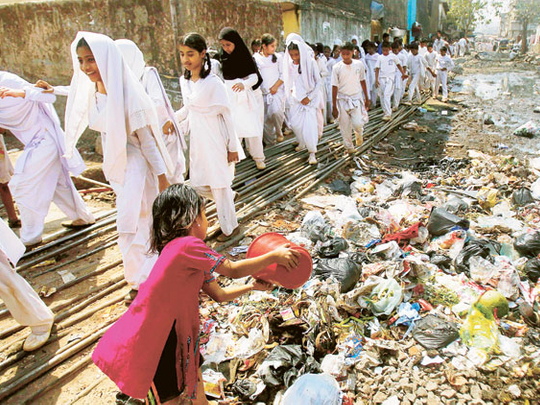
New Delhi The city of dreams, Mumbai has topped the list of cities that are home to a maximum number of slum dwellers in India, Unicef's annual State of the World's Children report said here Wednesday.
The report with the theme "Children in Urban World", released here, says India is home to over to 50,000 slums, of which 70 per cent are concentrated in five states of Maharashtra, Andhra Pradesh, West Bengal, Tamil Nadu and Gujarat.
"Nearly 70 per cent of the slum population are concentrated in Maharashtra (35 per cent), Andhra Pradesh (11 per cent), West Bengal (10 per cent), Tamil Nadu and Gujarat (7 per cent each)," the report noted.
While the slum population spanned across urban areas, the flagship report presents a grim picture of the reach of health services and social schemes to the urban poor who migrate to bigger cities in search of opportunities.
"According to Census 2011, urban population in India is around 377 million (nearly 30 per cent). By 2026, this will grow up to 40 per cent — totalling to an estimated 535 million people — who will be living in towns and cities," the report said.
Of the 377 million, around 97 million are below poverty line, says the Unicef report, referring to the figures given by the Planning Commission. Experts say cities have always been assumed to be romantic in terms of opportunities due to the employment opportunities they carry.
‘Nowhere people'
"Urban areas are fast becoming home to people known as ‘nowhere people'. This strata works at our houses, lives around us, and is actually the victim of displacement inhabiting urban slums," said S. Parasuraman, director of the Tata Institute of Social Sciences in Mumbai.
"Nearly 60 per cent of Mumbai's slum population lives in 8 per cent of land. The sanitation conditions, health facilities, infant mortality rate (IMR) is very dismal," Parasuraman added.












